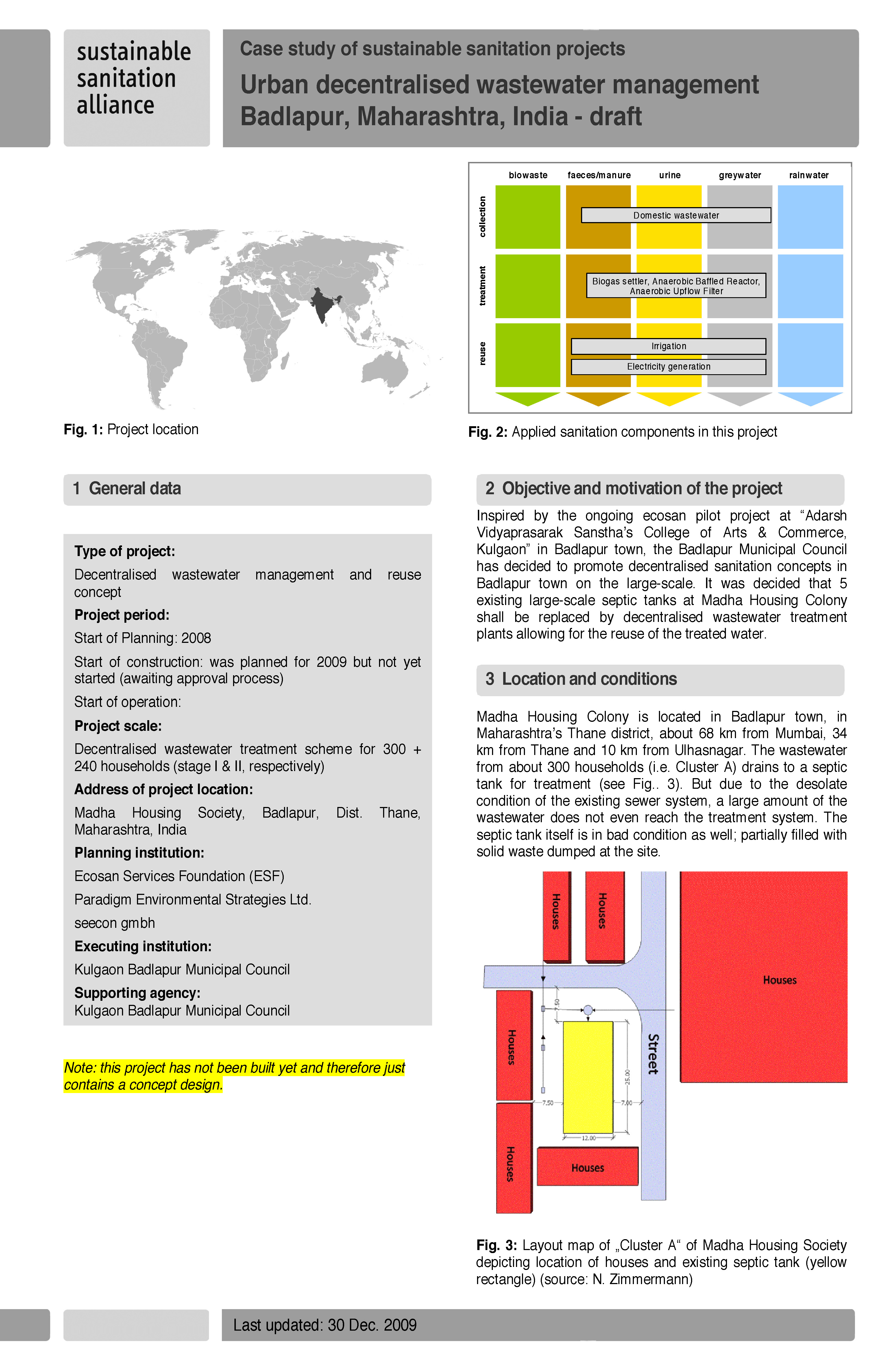Urban decentralised wastewater management Badlapur, Maharashtra, India - Draft. Case study of sustainable sanitation projects
Zimmermann, N., Wafler, M. (2009)

Published in: 2009
Publisher:
Sustainable Sanitation Alliance (SuSanA)
Author:
Zimmermann, N., Wafler, M.
Uploaded by:
SuSanA secretariat
Partner profile:
common upload
19511 Views
1134 Downloads
Location of library entry
Content - Summary
This case study is about a large-scale decentralised wastewater management and reuse project in Badlapur town, India, which serves 540 households in total for its stages I (300) and II (240). Both sewer system and septic tank of Madha Housing Colony are in bad condition and shall therefore be replaced by decentralized wastewater treatment plants allowing reuse of treated water.
Daily wastewater production is estimated to be about 200 m³. Treatment of domestic wastewater will happen in a decentralized treatment systems comprising a (biogas) settler, an anaerobic baffled reactor and an anaerobic upflow filter. The treated water shall be reused for irrigation purpose at the site. Biogas produced in the process of anaerobic wastewater treatment will be collected and shall be converted into electricity via a (bio) gas generator; the electricity can be stored in an accumulator (battery) and be used on-site to bridge power cuts.
The start of construction was planned for 2009 but has not yet started (awaiting approval process). A cost estimate suggests total project implementation costs of about INR 40 lakhs (i.e. approx. EUR 65,000). Operation and maintenance of the treatment facilities will be done by the Kulgaon Badlapur Municipal Council.
Bibliographic information
Zimmermann, N., Wafler, M. (2009). Urban decentralised wastewater management Badlapur, Maharashtra, India - Draft. Case study of sustainable sanitation projects. Sustainable Sanitation Alliance (SuSanA)
Filter tags
Biogas systems Case studies in SuSanA template East Asia & Pacific English Greywater or wastewater Urban (entire city)














